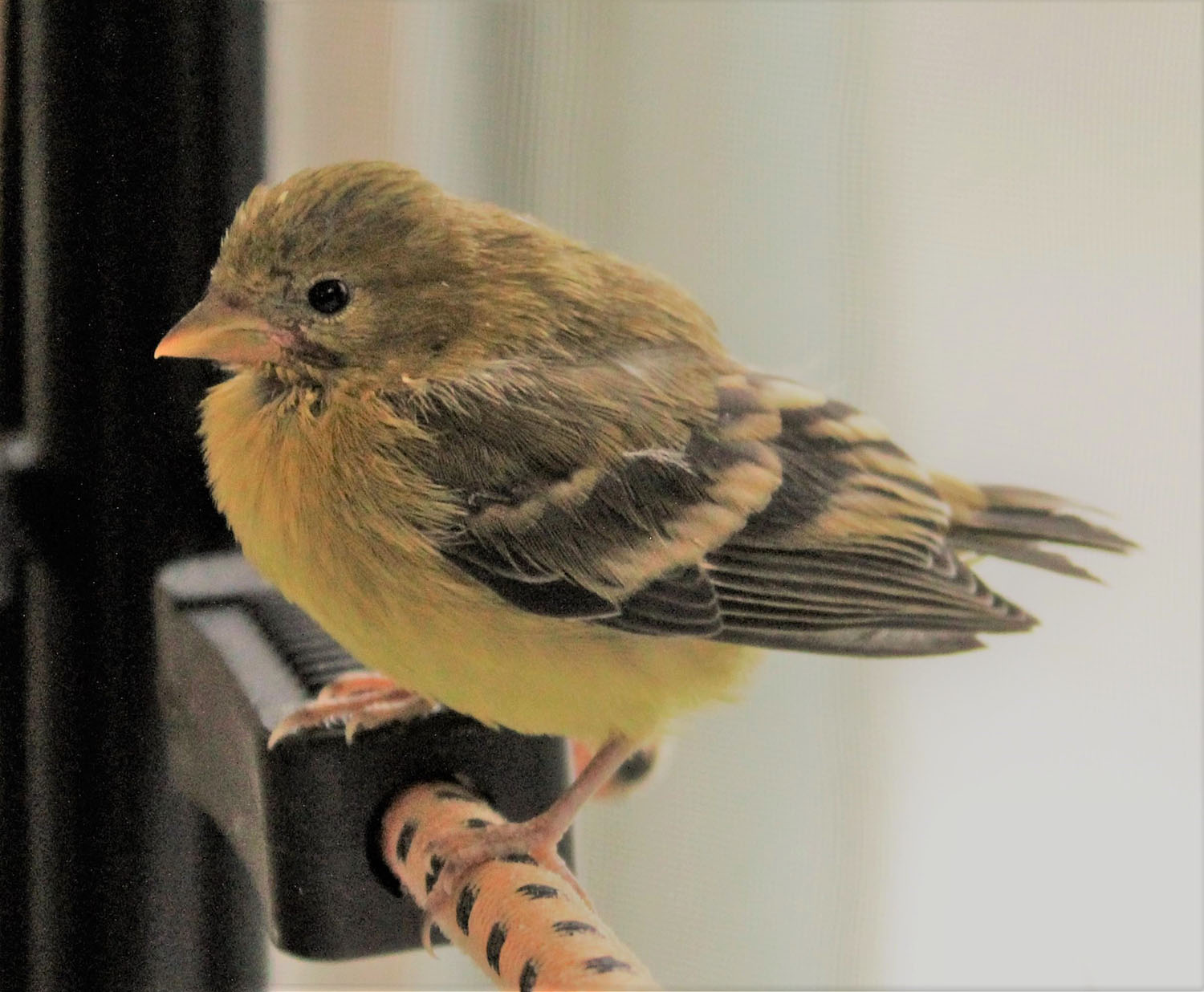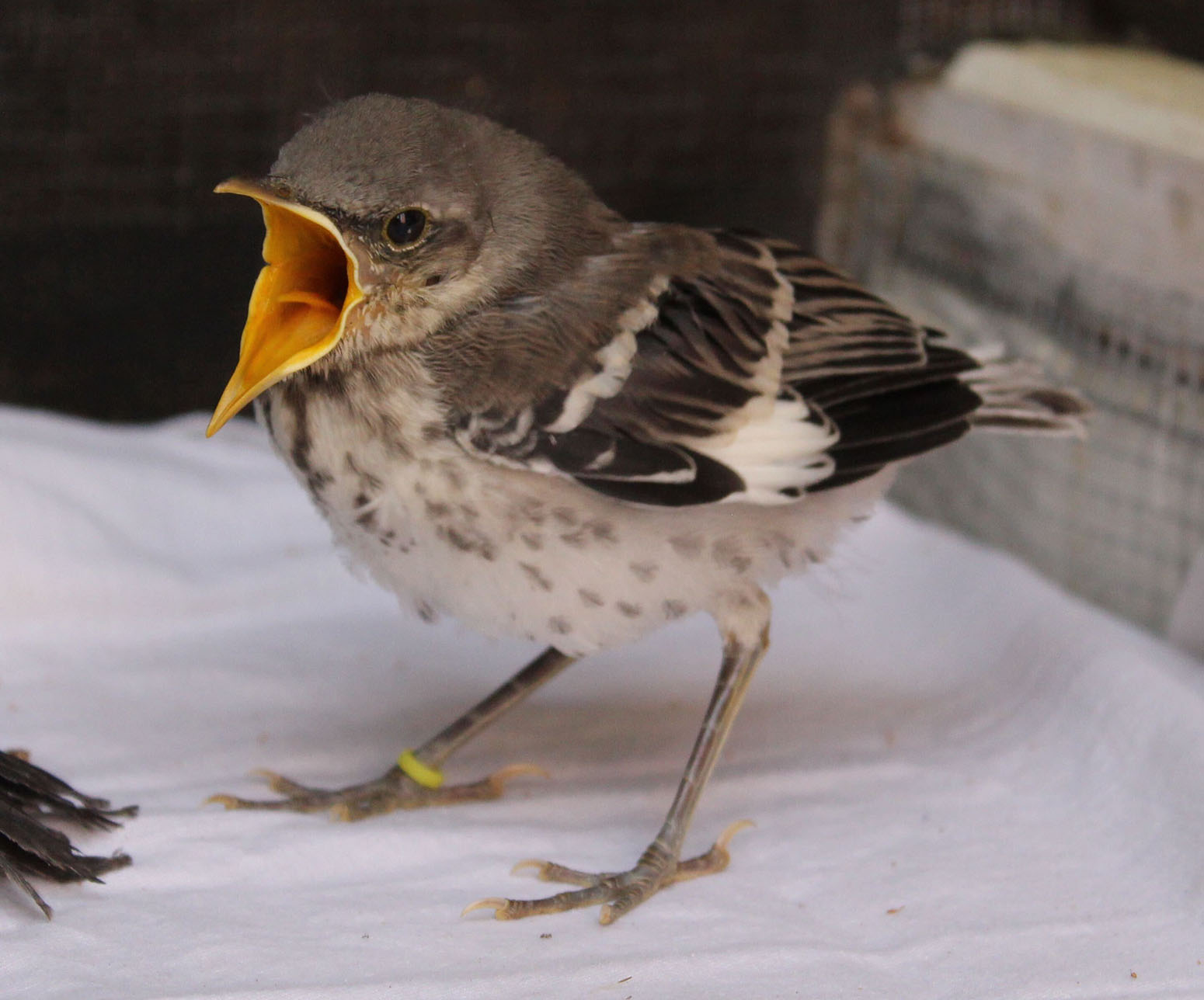Growing Fast
By Cambria Wells, Wildlife Technician Supervisor

A Lesser Goldfinch patient
Photo by Cambria Wells
Time in the Orphan Care Unit passes in regular increments marked by the beeping of timers and schedule of tasks. Every thirty minutes, every forty-five, every hour. Twice a day, three times a day. Once a week. The care of orphaned animals at CWC is not performed exclusively in the Orphan Care department but the rhythm of the room is uniquely fast-paced. There’s always another hungry mouth, always a new enclosure to clean, and always another baby coming in the door!
Before timers for feedings have started, we begin our day by preparing formulas to feed our seasonally occurring orphaned and injured species. Right now, in late spring and early summer, that consists of an assortment of songbirds and corvids (Crows, Ravens, and Jays). We address our patients in order of their need. We start first with providing formula and clean nests to Hummingbirds, House Finches, and Goldfinches, then split up to feed and clean our insect-eating birds such as Northern Mockingbirds.

Fledgling Northern Mockingbird
Photo by Cambria Wells
Finally, we work with our Mourning Doves and Band-tailed Pigeons, cleaning their enclosures and starting their tube-feeding schedules. Throughout this process, we prioritize based on patient age and medical status. A fledgling Crow may not need special care from us for most of the day; a nestling Hummingbird, on the other hand, will need feedings a minimum of every thirty minutes, along with regular bedding changes and fresh formula. Each species and each baby is unique, and providing the best care for them means carefully considering their natural history and individual needs.
Beyond feeding and cleaning there’s also a host of other animal care concerns. Many orphaned baby birds at this time of year come in with wounds, parasites, and viral or bacterial infections. Some have developmental problems which require special corrective “shoes” or wraps. All need enrichment in the form of fresh branches, new food items, and opportunities to learn to forage for food on their own. When one baby turns into three, and three turn into thirty, raising orphaned animals becomes a complex and rewarding experience.
